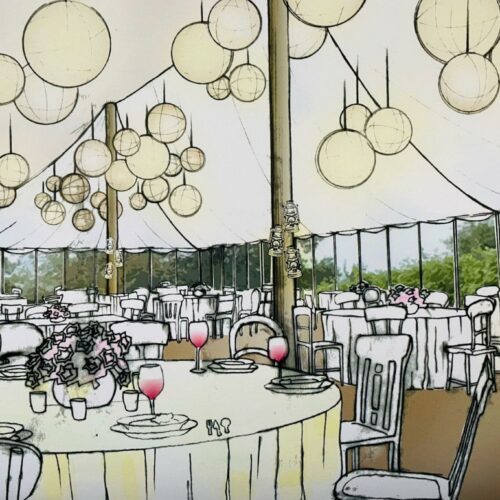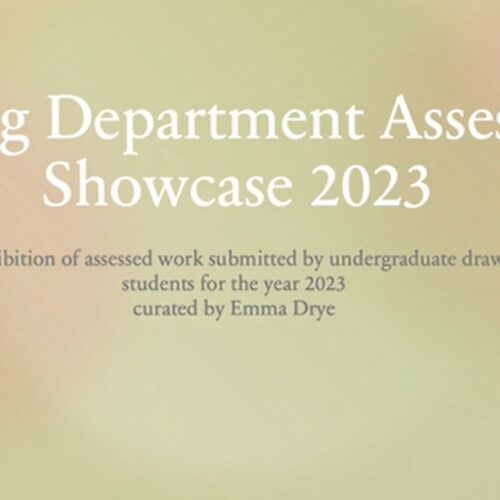
Conversations in an Unfamiliar Place.
Exchange
What happens when you open up a dialogue? What happens when space, both intellectual and geographic, are created in which to operate? What is the nature of collaboration?
What happens before, in-between and after these dialogues? Do you plan a dialogue, do you allow the conversation to be organic and adapt? And what happens when the conversation is closed or is there such a thing?
These were questions that propelled an idea that enabled an amazing research trip. Diana Ali and Michele Whiting took Lisbon on and what an incredible time we had. The following is a creative and pragmatic look at the time we spent together.
2 days, 5 galleries, 3 meetings and quite a few dead ends later….
Each story Michele told, triggered me to tell one of my own- we became a collection of short stories with illustrations. Each short conversation will hopefully culminate into a larger one which we can take further.
Each story was accompanied by a different setting or place, as we travelled across Lisbon together, backdrops that resonated with ideas.
So, to set the scene, Diana is a curator with many shows, in many places, under her belt, she is by admission first and foremost an artist and curation is part of her practice. This is something that is not separate but exists within the toolbox of her artistic methods. Michele is an artist who also curates as part of her methodology with an exploration of collaboration being key and foremost within her practice. Both of these practices are multi stranded, complex, generative and progressive. The third in our collaboration is Lisbon, she is an amazing city, vibrant, hilly, great food, noisy, multi-cultural, historic and full of great art.
So who is this Lisbon Michele talks about?
I find themes, places artists and visual narratives. I extend them to other artists to bring different fragments of cultures into one space.
Michele and I talked about taboo things, we spoke out loud and without inhibitions. To ourselves at least. Michele tells stories, I laugh. We have met, will unmeet in between projects and meet again.
But there are unfamiliar conversations to be had in unfamiliar places. Under the blood moon above the city, there was a quietness between us where we are having our own internal dialogues. How will I approach the gallery owners, how can I get them to trust me?
How did it start? We spoke about it one day in the winter, when the weather was cold and the sky was dark- it seemed like a good opportunity for the show ‘Loss and Lucidity’ that Diana had curated and successfully taken to Santa Ana, Californai, USA. My collaborative practice Quilos and the Windmill (Michele Whiting and Linda Khatir) had some work in this show, so it seemed a good reason to make connections, and also I needed a good excuse to get round all the galleries, and not just stick to the ones that I know.
I met Michele and Linda through a note which was left on a light switch in Bath in one of my shows FAB- I hadn’t met her physically. Our work is through collaboration, of others where cultures, languages, identities and faces are blurred. (Do you agree M?) We had our first conversation at an OCA event in year? I like to meet the un-met. We had a small dialogue, which turned into a sporadic rant, which turned into meaningful discussions on life, art, death, which turned into professional dialogues in gallery meetings in Lisbon. I had never been to Lisbon so didn’t know how the atmosphere would drive my conversations.
I found a listing on a previous visit and sent it to Diana who did a lot of ground work to write up her proposal and send it to the galleries on the list. Some were in areas that I had yet to discover, although I had been to Lisbon many times. So for me it was a different Lisbon. For Diana it was the first time she had been there, so it was a great combination of familiar and new, discovery and re-discovery for us both.
As soon as I received the list, I researched the spaces extensively, made appointments and visualised the dialogues I was to have with the gallery owners. When I arrived and Michele met me at the airport, I waved frantically because it is always nice when someone meets you at an airport but despite the barrier between us in arrivals which seem to last forever, we were having gestural dialogues of when we would actually talk. I only saw Lisbon on my laptop but now I was here and the dialogue could start in real time.
There were appointments that had been put in the time plan for the days that we were there, and we tore through the streets walking 10 miles plus every day, jumping on trains, uber’s, buses and boats to reach these spaces and talk to the gallerists in them.
We walked uphill, downhill, we worked out routes until we got them wrong, we went from tourist areas, to residential quiet out of town areas, static and moving pathways. But despite being on a ferry, metro, a bus, plane, taxi, on foot, conversations were always had amongst a foreign language where we or rather Michele, tried to converse. When we sat down, to reflect this, we continued our conversations amongst the Fado music, another kind of dialogue which neither of us understood.
Conversations are unplanned when I talk to Michele and planned when we talk to strangers to ask for directions, to order food or to talk to the gallerists. Are conversations conscious?
Collaboration is about putting heads together, sharing, talking and dreaming- ultimately it is about production and this trip produced two shows one at AppletonSquare Gallery and one at Fabrica Braço do Prata spanning some 5 weeks this summer. Diana was great at talking to the galleries, it is what she does best, communicating with ease and honesty- I was very happy for her to lead her project and careful not to step in too much, as this is her lead and project; it is here in this space of collaboration that it is essential to comprehend how it works and what you need to do- so discussion and planning are key to something like this.
Michele was there as I had my dialogues in the meetings. Michele was there after the meetings. Dialogues which resulted in successes. She was there to reassure me if my dialogues were successful or not, thinking awkward silences, babbling, lost in translation or crossing the line- whatever it was, it worked.
So, when a dialogue is opened up, it is opened up not just for the minute that you start it, but for a sustainable period, Diana and I will be collaborating in various ways for the next 6 months and probably beyond, she will have her show Loss and Lucidity in Lisbon this summer, people will see and engage with it, artists will come and things will happen. Lisbon has given us many things, it has been a space of negotiation, exchange, discovery and opportunity. It is not to do with money but to do with that valuable undervalued word- freedom. Freedom to inhabit new spaces, speak new languages, meet new people. Intellectual freedom, the freedom of discovery.
I have now come back leaving Michele to keep talking to herself. I will continue to talk to myself too, albeit, with excitement, apprehension. We will of course bring these self-conversations together to continue our dialogue as artists, curators, researchers and friends until we come back to Lady Lisboa.
|
|







This post speaks to me of the processes of making, exchanging and researching that are so vital in Fine Art practice and in the exploration of ideas – whether this is in place, space, material or the nature of being. Sounds like it was a very full and enjoyable trip
Thanks Caroline. It was a fruitful trip. It’s worth just having conversations and see where it goes.
Lovely idea but who or what is this Lady Lisboa? When I googled this phrase, I got alot of sites about the availability of escort girls in Lisbon. I guess this wasn’t your Lisbon? I wish you’d said something about the actual places you met up. Were they cafes where Lisbon’s painters and writers meet? And which galleries did you choose for exhibiting and why? I was in Lisbon three years ago on a Jewish historical tour. I guess I saw a different Lisbon – the places connected with the Inquisition, with Salazar, with the 1974 revolution. Why did you choose Lisbon? And what effect will Brexit have on your relationship with the Lisbon galleries?
— thanks for this, I really enjoyed reading it and it’s nice to see a performative text here.
Thank you! Dialogues are great!